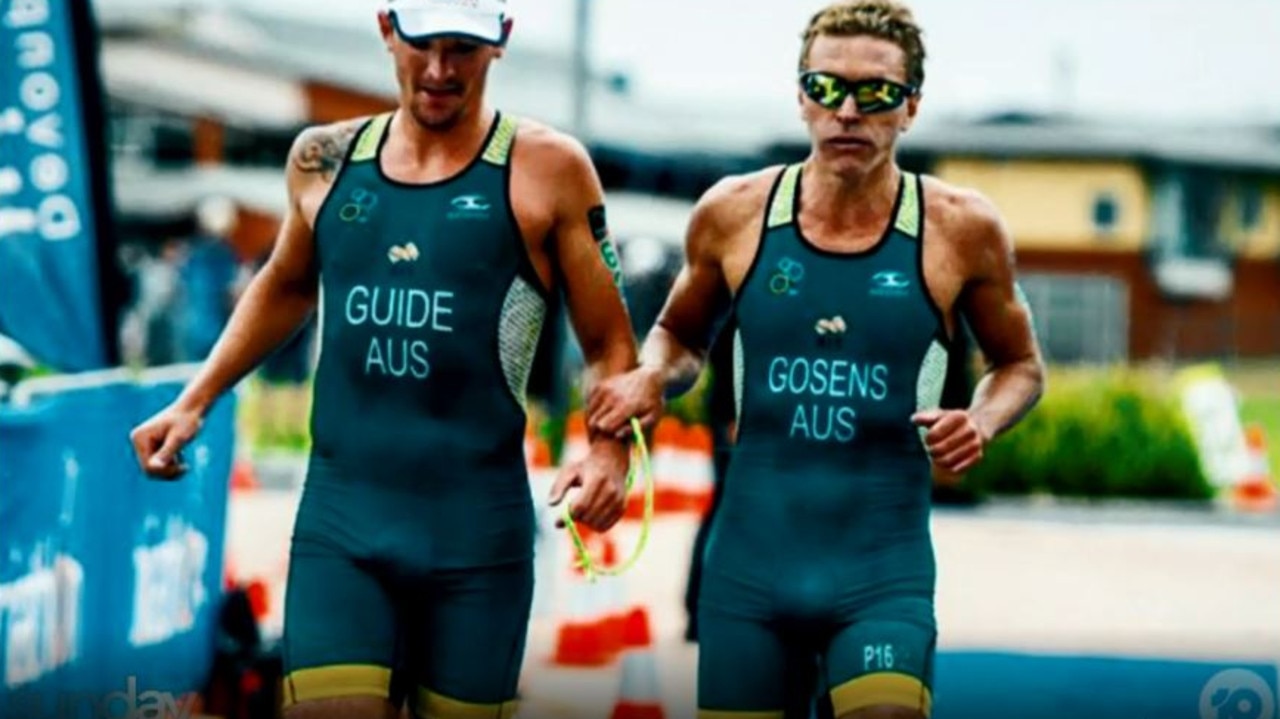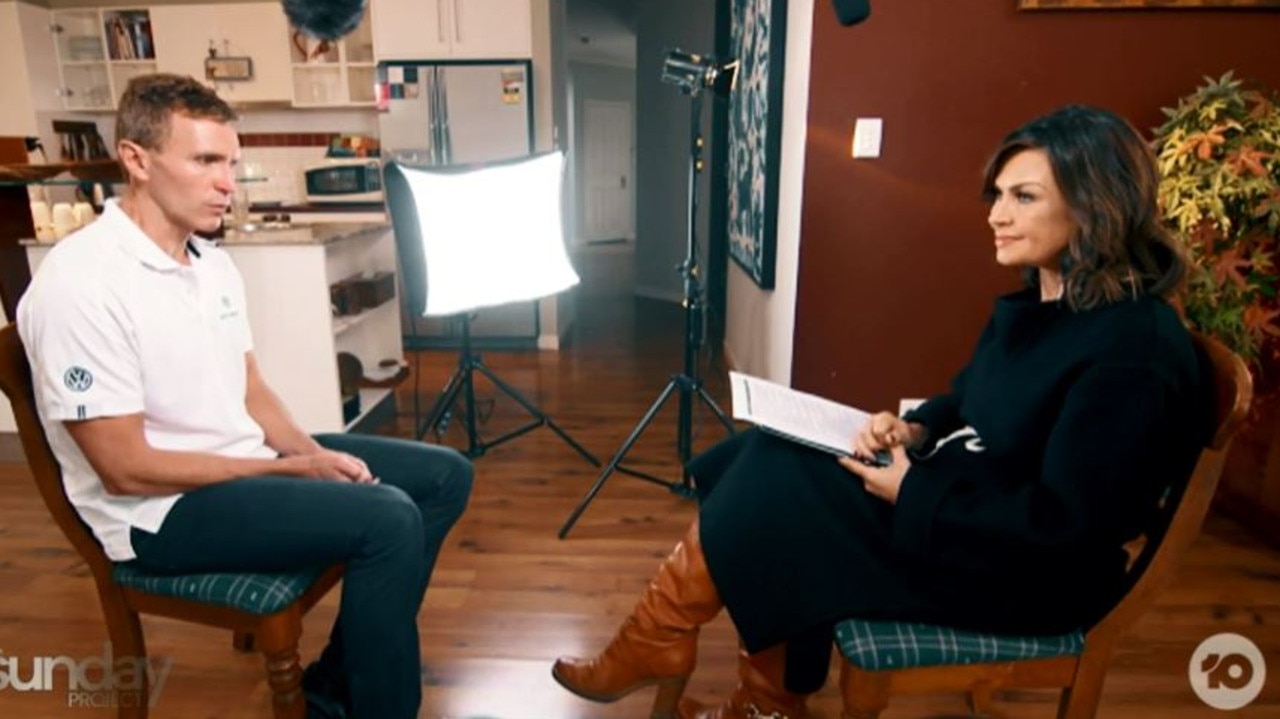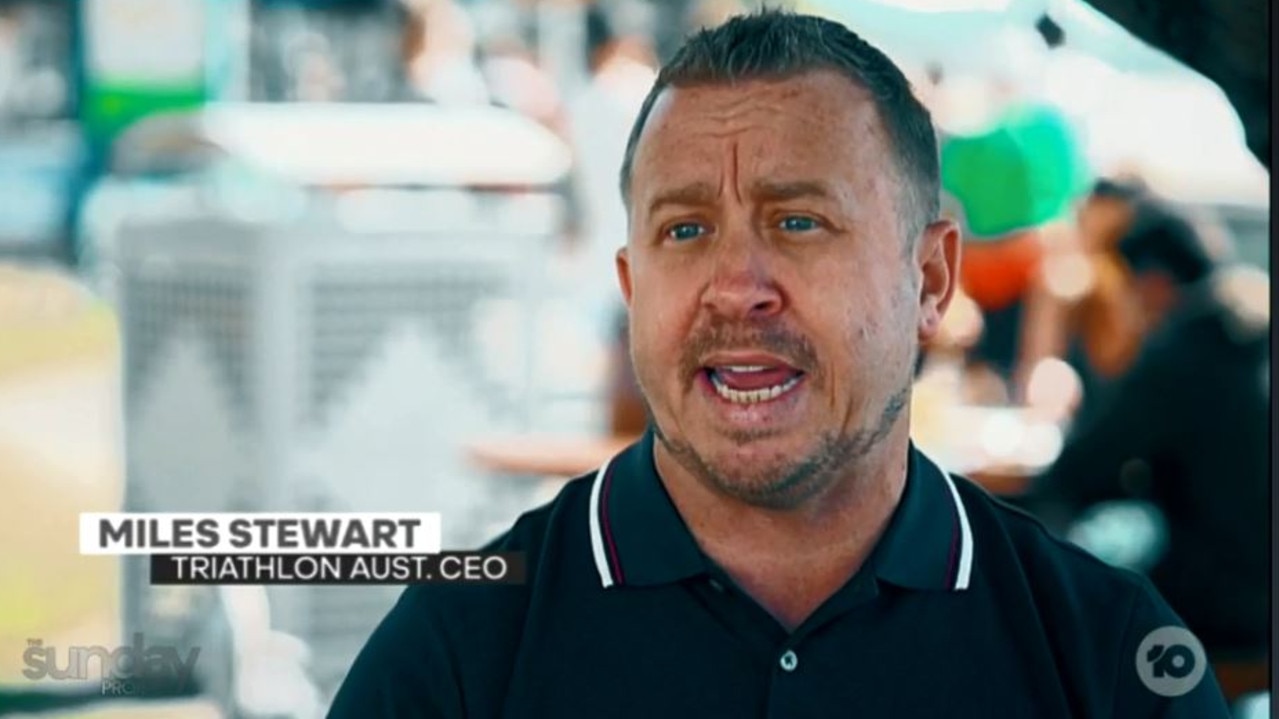Blind Paralympian banned from competing after his guide tested positive for banned substance
A blind triathlete has been caught up in a doping scandal and banned from competing in the sport he loves even though he’s never failed a drug test.
Blind triathlete Gerrard Gosens has been caught up in a doping scandal which has seen his Paralympic dream cruelly snatched away after his guide tested positive for a banned substance.
Under a bizarre loophole, Gosens has been barred from competing at a professional level — despite the fact he has never failed a drug test — after his guide Stephen Thompson tested positive for the drug erythropoietin (EPO).
Appearing on The Sunday Project, the 49-year-old Brisbane athlete, who has already competed in three Paralympics and climbed Mt Everest, told host Lisa Wilkinson he felt “empty, angry, frustrated (and) confused”.

“Just to be clear, you didn’t and have never tested positive to a banned substance?” Wilkinson asked.
“I have been tested in my entire career as an athlete for three para-Games and world championships. The strongest thing I’ve had is a cup of coffee or a sports drink,” Gosens replied.
The unfair decision came after Gosens and Thompson took part in a race — before which they were both drug tested for banned substances and both returned negative results.
However, two days earlier, Thompson had won a silver medal and the results from a drug test related to that race landed him in trouble with the International Triathlon Union, according to The Sunday Project.
The test revealed that Thompson tested positive for EPO and as a result, he and Gosens were both disqualified as the ban started from the day when his guide “did the crime” — just days before the pair’s race.
“I would understand if my guide on that date was racing with me and found positive for drugs, I would understand that because perhaps somewhere along the race there could have been some advantage,” Gosens said.

He told the show that his disqualification had cost him valuable points and it was virtually impossible he would be able to take part in next year’s Paralympics representing Australia.
Adding insult to injury, challenging the International Triathlon Union’s ban with the Confederation of Australian Sports would cost tens of thousands of dollars — money Gosens said he simply didn’t have.
“Three years and now it’s almost lost. I haven’t had a phone call from Stephen. I’ve had an email apologising. He denies taking EPOs. He tried to blame it on when he went to Bali. He had a tooth infection and took some medication,” Gosens said.
While initially he believed Thompson’s excuse, subsequent testing had ruled this out.
“(I am) confused why he won’t pick up the phone and say, ‘I’m sorry.’ Apologise not just to me but the people who surround me in my team. Because they are just as impacted as I am as an athlete,” Gosens said.

“All I can do now is train and aim at other events to see if I can get enough points. I’m battling a very large battle.”
Miles Stewart, CEO of Triathlon Australia, told The Sunday Project that while he sympathised with Gosens, rules were rules.
“We do feel sorry for him and sympathise with him. He understands the rules at play and unfortunately he’s fallen on the wrong side of those based off no fault of his own but (he’s)
still in the same situation,” Mr Stewart said.
Wilkinson said The Sunday Project had tried to contact Thompson more than once but he declined to comment or give an interview.




